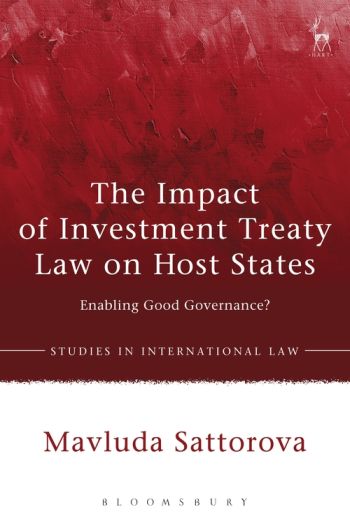
This book examines the role of international investment treaties in fostering good governance and rule of law on a national plane. Although they were historically designed to protect foreign undertakings from opportunistic governmental behaviour, international investment treaties have gradually come to be interpreted as also requiring host States to maintain good governance standards in their dealings with foreign investors. Lack of transparency, stability, predictability as well as the lack of effective remedies and enforcement mechanisms at a national level can now lead to a host State’s liability in damages.
The book questions whether investment treaty norms can induce governments into compliance with the rule of law and good governance standards. To what extent and how do investment treaty norms influence government decision-making in host states? How do host States respond to investment treaty remedies? The book offers a novel socio-legal and interdisciplinary analysis of the impact of international investment law on governmental conduct. The capacity of the investment treaty regime to foster the rule of law and governance reforms in host States is also examined from a comparative perspective, with focus on the rule of law and regulatory compliance initiatives undertaken by the World Bank and the European Union.